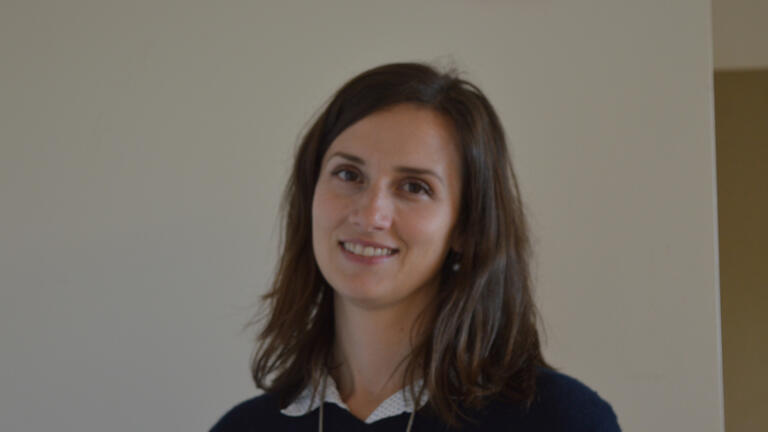Human Rights and High School
A sense of responsibility to address injustices is what motivated Zoe Marinkovich ‘14 to pursue a doctorate in international and multicultural education at the University of San Francisco. Now a high school teacher in the Bay Area, Marinkovich teaches a human rights course that puts students’ lived experiences, and the history of the places they call home, at the center of their learning. “As an educator, I feel responsible for helping my students to see themselves in my curriculum, to understand the challenges facing our society, and then know how they can have an impact.”
At Summit Public Schools, the not for profit public charter network where Marinkovich works, students participate in the Expeditions Program - a two week block occurring four times a year in which students take a break from their core courses to focus entirely on expeditionary learning. Marinkovich’s course on human rights is one of the options available to 9-12th grade students.
“The course provides students with an introduction to the International Bill of Human Rights and then takes students through three case studies: immigration, the right to an adequate standard of living, and police violence,” says Marinkovich. “As much as possible, student learning is grounded in the locations, history and local expertise of the communities in which they live.” Students in Daly City study Chinese immigration to the United States which includes a visit to the immigration station on Angel Island. In the East Bay, students learn about the experiences of asylum seekers by partnering with local NGOs supporting refugees who have recently arrived in the United States.
For Marinkovich, this work has been an important part of her own learning. “I grew up in San Francisco and much of the history of this place and the incredible human rights work that is being done everyday was unknown to me before I began teaching this course.”
The course has also motivated students to address the injustices they experience in their own lives. After a unit on police brutality, several students leveraged their own lived experiences with policing and racial discrimination to lobby and educate their representatives and community members.
“My students in some sense already understood human rights because they witness violations in their community,” says Marinkovich. “The change comes when they have the words to describe it - the knowledge and confidence to do something about it. This helps them to see themselves as powerful and, I think, makes school matter.”
